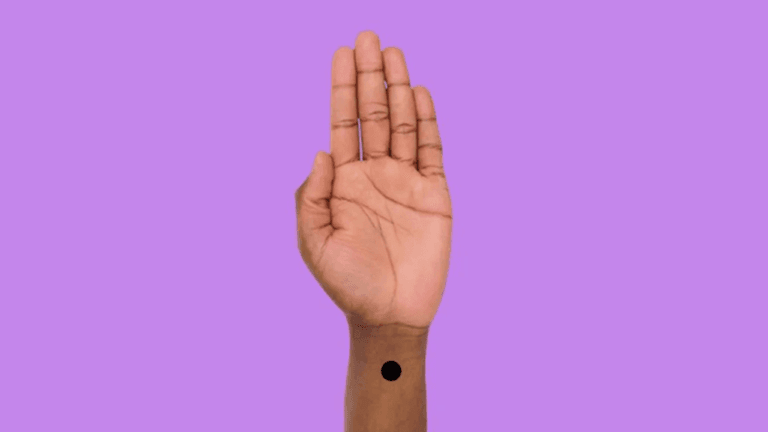Sleep is key to our daily lives, crucial for brain health and well-being. Scientific research proves sleep is vital for survival. It affects almost every part of our body, from the brain to our immune system.
The connection between sleep and brain function is clear. Sleep helps our brain cells talk to each other. This process strengthens memories, handles emotions, and refreshes our thinking skills. Without enough sleep, we struggle with focus, making decisions, and remembering things.
Most adults need 7-9 hours of sleep each night for their best mental state. But, work hours, endless entertainment, and sleep disorders often cut into our sleep time. Not getting enough sleep can make it hard to focus, remember things, and adapt to new situations.
Key Takeaways:
- Sleep plays a vital role in maintaining optimal brain function and overall well-being.
- Adequate sleep is necessary for attention, concentration, and decision-making skills.
- Chronic sleep deprivation can lead to impaired judgment and increased risk of neurodegenerative diseases.
- Most adults require 7-9 hours of sleep each night for optimal cognitive performance.
- The consequences of chronic sleep deprivation on cognitive function can be significant.
The Importance of Sleep for Cognitive Performance
Sleep is key for keeping our brains sharp. It helps with memory, focus, and handling emotions. Research shows that not getting enough sleep can hurt our thinking skills. So, getting quality sleep is crucial for our brain’s health.
Memory Consolidation and Sleep
Sleep helps solidify new memories. It’s like a recharge for our brain. This happens mainly in the first part of the night, when we’re in deep sleep.
Attention, Concentration, and Sleep Deprivation
Not sleeping well can mess with our focus and decision-making. People who don’t sleep enough struggle to make smart choices. Even medical interns who don’t get enough sleep make more mistakes.
“Sleep is the golden chain that ties health and our bodies together.” – Thomas Dekker
Not sleeping enough gets worse over time. A study found that not getting enough sleep for 14 days is as bad as not sleeping at all. This shows how important it is to sleep enough every night.
Stages of Sleep and Their Impact on Brain Function
Sleep is a complex process that keeps our brains working well. It’s divided into two main types: non-rapid eye movement (NREM) sleep and rapid eye movement (REM) sleep. Each stage has its own brain activity patterns and plays a key role in brain health.
NREM sleep makes up about 75% of our total sleep time. It’s split into three stages, each with different brain wave patterns. During NREM sleep, the brain cleans out toxins and helps create new brain cells.
NREM Sleep: Restorative Processes for the Brain
Stage N2 of NREM sleep is the deepest, making up 45% of our sleep. It’s when sleep spindles and K-complexes help with memory and learning. This stage boosts the brain’s ability to adapt and make new connections.
People usually go through four or five sleep stages each night. They spend less time in deep sleep and more in REM sleep as the night goes on. Each cycle lasts about 90 minutes, with 4 to 6 cycles per night.
REM Sleep: Emotional Processing and Creativity
REM sleep is when we dream vividly and process emotions. Brain activity is like when we’re awake, and new ideas pop up. It’s key for remembering emotional and procedural skills.
Researchers found a gene called “wide awake” that affects sleep timing. It’s found in fruit flies, humans, and mice, showing sleep patterns are influenced by genetics. Our body’s need for rest is controlled by our biological clocks and sleep drive.
“Sleep is the golden chain that ties health and our bodies together.” – Thomas Dekker
Knowing about sleep stages and their effects on the brain is crucial for staying sharp and healthy. Getting enough sleep in each stage helps our brain function, memory, and ability to adapt.
Sleep and Brain Function: The Crucial Connection
The link between sleep and brain function is complex. It’s managed by circadian rhythms and sleep-wake homeostasis. Circadian rhythms control hormone release, like melatonin, which makes us sleepy. Sleep-wake homeostasis tracks our sleep need, growing stronger with wakefulness.
The glymphatic system is a new discovery. It clears brain toxins during sleep, boosting brain function. It uses cerebrospinal fluid to remove waste, keeping the brain healthy. Studies show different memories are processed in different sleep stages, with slow-wave and REM sleep being key.
Not getting enough sleep hurts our brain power. Lack of sleep can cut learning abilities by 40%. Over 900 million people worldwide have obstructive sleep apnea (OSA), causing depression and memory loss, mainly for personal facts.
“Sleep is the golden chain that ties health and our bodies together.” – Thomas Dekker
Getting enough sleep is key for brain health. Natural sleep aids like melatonin, valerian root, and chamomile can enhance sleep and brain function. Understanding the sleep-brain connection helps keep our minds sharp and healthy.
The Glymphatic System: The Brain’s Waste Removal Process During Sleep
Sleep is crucial for brain health, and the glymphatic system plays a key role. This system is most active when we sleep. It helps remove toxic waste that builds up when we’re awake.
The glymphatic system has channels that let cerebrospinal fluid flow through the brain. This fluid clears out harmful substances. Glial cells help control this flow, making sure toxins are removed from the brain’s spaces.
Research shows that most waste is cleared during sleep. This is when the glymphatic system works its best.
How the Glymphatic System Works
The glymphatic system’s work depends on good sleep. Studies link deep sleep to better waste removal. This includes removing harmful proteins linked to Alzheimer’s.
As we age, it’s harder to get deep sleep. This makes it even more important for brain health.
The Role of Sleep in Clearing Brain Toxins
Good sleep is key for the glymphatic system. Sleep problems are linked to brain diseases, showing how important sleep is for brain health. Things like exercise, posture, and stress can affect how well the system works.
Improving sleep can help the glymphatic system. This might prevent or treat diseases caused by poor waste removal. Sleep therapy could be a way to enhance sleep and brain function.
“Sleep is the golden chain that ties health and our bodies together.” – Thomas Dekker
More research on the glymphatic system shows how vital sleep is. It helps keep our brains working well and prevents serious diseases.
Consequences of Chronic Sleep Deprivation on Cognitive Function
Chronic sleep deprivation can harm our brain’s function. It can make us less able to make good decisions and remember things. It also raises the chance of getting diseases that harm the brain.
Studies show that not getting enough sleep over time is worse than just one night without sleep. Lack of sleep affects our memory, attention, and how alert we are. It also lowers how well our brain works overall.
Impaired Judgment and Decision Making
Sleep loss can mess with our ability to make good choices. People who don’t sleep well take longer to make decisions. This shows their brain is working slower.
This problem comes from changes in the brain’s emotional and decision-making centers. So, people who don’t sleep well might make bad choices. This can lead to accidents and mistakes at work or in everyday life.
Increased Risk of Neurodegenerative Diseases
Not sleeping enough can make us more likely to get diseases like Alzheimer’s. Sleep helps remove bad stuff from the brain. It keeps the brain working right.
When we don’t sleep, our brain can’t clear out toxins. This means bad proteins build up. This is bad for people with Alzheimer’s. So, getting enough sleep is key to keeping our brain healthy.
Chronic sleep deprivation has big effects on our brain and life. It can hurt our work and health over time. We need to make sleep a priority. Getting 7-8 hours of sleep each night is important.
By fixing sleep problems and taking care of our sleep, we can avoid these issues. This helps our brain work better and keeps us healthy.














